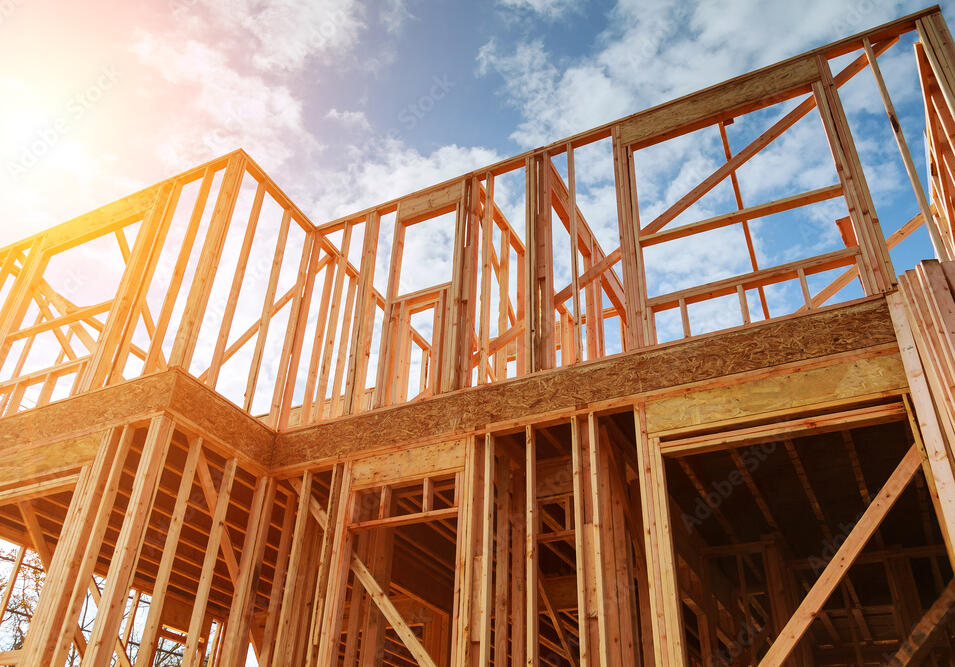About MIHA
The Middle Income Housing Authority (MIHA) was established by Colorado SB22-232 and amended by SB23-035 . MIHA is a special purpose authority independent from the state whose purpose is to promote affordable rental housing projects for the middle-income workforce throughout Colorado.MIHA is governed by a Board of Directors composed of appointees by the Governor, the OEDIT Executive Director, and DOLA’s Division of Housing Director. MIHA will support middle-income workforce housing by providing financing opportunities for rental units between 80% and 120% AMI, or 140% AMI for rural resort areas. The primary tools offered by MIHA include issuing bonds and entering into public-private partnerships. The MIHA Board of Directors makes all decisions for the Authority. MIHA is currently administered by the Colorado Office of Economic Development and International Trade (OEDIT). MIHA has partnered with Sierra Management Group as the financial advisor for application review. Sierra Management Group provides financial advisory services.MIHA has the power to issue bonds to finance affordable rental housing projects or to accomplish any of its powers or duties relating to affordable rental housing projects. The bonds may be payable from any the revenues or assets of MIHA and may be secured by any of MIHA’s revenues, assets or property. MIHA’s income, property, bonds and interest on MIHA’s bonds are exempt from state and local taxation and assessments and its purchase and use of property are exempt from state and local sales and use taxes. MIHA may make payments in lieu of taxes to the state or local governments.MIHA is currently administered as a pilot program with the goal to select up to 3,500 proposed middle-income units for bond financing. Eighty percent of the units must be new build construction. A report on the pilot program will be submitted to the legislature as this goal nears completion.* To be included on MIHA notifications including Board Meeting notices, please email your name, title, business and email to info@coloradoMIHA.com.

The Need
Middle-income workers in Colorado face a rising shortage of affordable housing—a gap that is unfilled by private market development and most existing affordable housing programs. Many state and federal affordable housing programs, including low-income housing tax credits (LIHTC), serve individuals and households at 80% AMI and below. MIHA is uniquely positioned to serve households between 80% and 120% AMI, or 140% AMI in rural resort communities (subject to increase by the Board based on local market conditions). Creating housing at these AMI levels helps renters including nurses, teachers, firefighters, and other members of communities who earn too much to qualify for governmental housing subsidies and for whom the market is not building new housing.
Powers of the Authority
MIHA has the power to acquire, own, operate, and finance affordable rental housing projects.
MIHA has the power to issue bonds to finance affordable rental housing projects or to accomplish any of its powers or duties relating to affordable rental housing projects. The bonds may be payable from any the revenues or assets of MIHA and may be secured by any of MIHA’s revenues, assets, or property.
MIHA is authorized to enter into public-private partnerships and to contract with experienced real estate professionals to develop and operate affordable rental housing projects.
MIHA may provide housing assistance to tenants in its affordable rental housing projects to help them purchase homes, but the assistance may only be provided from funds not needed for developing projects.
Additional powers of the authority are outlined in SB22-232 and SB23-035
Application
MIHA applications are open. We suggest you contact MIHA at info@coloradoMIHA.com to discuss your project ahead of submitting the Initial Application. We are working to ensure that all MIHA information is accessible, if you need assistance completing the Initial Application, please contact us at info@coloradomiha.com with a phone number.
The application document is linked below.
Directions for form: Click on the link above and download the document as a Word Document. This is done by clicking "File" in the top left corner and scrolling down to "Download". Then click "Microsoft Word".
Selection Process
In March 2023 MIHA launched the initial project selection process and conditionally selected six projects. MIHA reopened the selection process on March 8, 2024 and is currently accepting applications. Sign up for MIHA emails to stay informed. MIHA is seeking new units in addition to acquisition projects and is required to maintain at least 80% of its portfolio as new units.MIHA is authorized to issue tax exempt bonds to finance affordable rental housing projects. The bonds will be payable from the project revenues. Once MIHA establishes a portfolio of projects, the bonds may be secured by MIHA’s revenues, assets or property.Developers are expected to submit a complete list of funding sources in addition to the MIHA bonds. Private sector developers fees are limited to an amount less than the customarily used for LIHTC projects as of June 3, 2022.

Program Priorities
The Authority shall give preference to proposed Affordable Rental Housing Projects that promote one or more of the following goals and objectives:
Increase the supply of affordable workforce housing in urban, rural, and rural resort communities across the state that responds to each community's demonstrated need for middle-income projects in which at least 60% of units within a particular development are available to rent or are actively rented to middle-income individuals and families.
Create opportunities to build intergenerational wealth for families.
Meaningfully contribute to the alleviation of housing pressures the local workforce faces.
Provide for the long-term affordability of rental units.
Have minimal negative impact on existing or planned affordable housing projects in the state, which impacts shall be evaluated by the Authority in consultation with other housing authorities, nonprofits, local governments, or any other applicable entity.
Target a diverse range of income levels within the income restricted housing component for middle-income individuals and families and proposes at least 30% of the rental units for individuals and families with annual income of the household at 80% of the AMI of households of that size in the county in which the housing is located or demonstrably targets the lowest possible AMI for middle-income individuals and families given the proposed scope of the development.
Promote mixed-income development where a percentage of units, proportional to the local demonstrated housing needs within a particular development, have restricted availability to households at the income levels for middle-income individuals and families. The percentage of restricted units and affordability levels must comply with any local laws promoting the development of new affordable housing units.
This list of criteria can be found in See Section 29-4-1107(1)(c)(I-VII) of SB22-232.

Resources

MIHA in the News
CO Public Radio: Gov. Polis proposes plan to build more housing as units for low-income Coloradans disappearOEDIT Press Release: OEDIT Announces Former San Miguel County Commissioner as Head of New Innovative Housing Programs
Links & Resources
Legislation
Colorado SB22-232: Creation Of Colorado Workforce Housing Trust Authority
ColoradoSB23-035: Concerning the operation of the Middle-Income Housing AuthorityHousing in Colorado: News and Reports
Denver Post: Colorado's Affordable Housing Crisis Has Spread from the Mountains to the Front Range
Colorado Housing and Finance Authority: Area Median Incomes By County and Household Size - 2024
Bell Policy Center: Colorado Housing Primer
Colorado Newsline: Gov. Jared Polis Delivers Housing-Centric State of the State Speech to Colorado Lawmakers
Future of Colorado: Roadmap to Colorado's Future: 2026
Rocky Mountain Institute: Solving Colorado’s Housing and Climate Crisis
Up for Growth: 2023 Housing Underproduction in the U.S.Community Need & Support
Urban Institute: Seven Ways to Improve Community Involvement in Local Policymaking
Colorado Health Institute: Making a Home for HealthOffice of Economic Development and International Trade Newsletter
Sign up for the newsletter at the bottom of OEDIT's homepage.Tools and Guides
Colorado Housing and Finance Authority (CHFA): Developers Guide - a step-by-step guide through the development process with tools to analyze affordable housing needs in your community.
CHFA: Rent and Income Limits
Enterprise: Affordable Housing Decarbonization Hub - a consolidation of tools and information from the basics of understanding decarbonization to finding and accessing financial resources.
Additional Middle-Income Funding Resources:
Job Postings
The Middle-Income Housing Authority does not have any vacant positions at this time. Please check back for future opportunities.
MIHA Board Notices/Documents

2026 MIHA Board Meetings
| MIHA Board Meetings are scheduled every other month with special meetings as needed. | 2026 Meeting Agendas and Minutes |
Upcoming Events
| Date | Event |
|---|---|
| Nothing scheduled |
Official Postings
Past Events
MIHA Board Meetings
2025
2024
2023
Resolutions
MIHA Resolutions
2025
2024
2023
MIHA Board Meetings 2025:
| 1/24/2025 | MIHA Board Meeting - View the Minutes. |
| 2/28/2025 | MIHA Subcommittee Meeting - View the Minutes. |
| 3/28/2025 | MIHA Board Meeting - View the Minutes. |
| 5/23/2025 | MIHA Board Meeting - View the Minutes. |
| 7/25/2025 | MIHA Board Meeting - View the Minutes. |
| 9/26/2025 | MIHA Board Meeting - View the Minutes. |
| 11/21/2025 | MIHA Board Meeting - View the Minutes. |
MIHA Board Meetings 2024:
| 12/20/2024 | MIHA Board Meeting - View the Agenda and the Minute. |
| 11/15/2024 | MIHA Board Meeting - View the Agenda and the Minute. |
| 10/28/2024 | MIHA Board Communications & Outreach Subcommittee Meeting - View the Agenda. |
| 10/18/2024 | MIHA Board Meeting - View the Agenda and the Minute. |
| 9/20/2024 | MIHA Board Meeting - View the Agenda and the Minute. |
| 9/12/2024 | MIHA Board Finance Subcommittee Meeting - View the Agenda and the Minute. |
| 8/15/2024 | MIHA Board Development and Real Estate Subcommittee Meeting - View the Agenda and the Minute. |
| 7/19/2024 | MIHA Board Meeting - View the Agenda and the Minute. |
| 6/21/2024 | MIHA Board Meeting - View the Agenda and the Minute. |
| 5/17/2024 | MIHA Board Meeting - View the Agenda and the Minute. |
| 4/19/2024 | MIHA Board Meeting - View the Agenda and the Minute. |
| 3/28/2024 | MIHA Board Local Government Subcommittee Discussion Meeting - View the Agenda and the Minute. |
| 2/16/2024 | MIHA Board Meeting - View the Agenda and the Minute. |
| 1/19/2024 | MIHA Board Meeting - View the Agenda and the Minute. |
| 1/5/2024 | MIHA Board Project Selection Policies and Procedures Subcommittee Meeting - View the Agenda and the Minute. |
MIHA Board Meetings 2023:
| 12/22/2023 | MIHA Board Project Selection Policies and Procedures Subcommittee Meeting - View the Agenda and the Minute. |
| 12/15/2023 | MIHA Board Meeting - View the Agenda and the Minute. |
| 11/9/2023 | MIHA Board Meeting - View the Agenda and the Minute. |
| 10/4/2023 | MIHA Board Meeting - View the Agenda and the Minute. |
| 9/22/2023 | MIHA Board Meeting - View the Agenda and the Minute. |
| 18/8/2023 | MIHA Board Meeting - View the Agenda and the Minute. |
| 7/21/2023 | MIHA Board Meeting - View the Agenda and the Minute. |
| 6/16/2023 | MIHA Board Meeting - View the Agenda and the Minute. |
| 5/12/2023 | MIHA Board Meeting - View the Agenda and the Minute. |
| 4/14/2023 | MIHA Board Meeting - View the Agenda and the Minute. |
| 3/17/2023 | MIHA Board Meeting - View the Agenda and the Minute. |
| 2/17/2023 | MIHA Board Meeting - View the Agenda and the Minute. |
| 1/20/2023 | MIHA Board Meeting - View the Agenda and the Minute. |
Resolutions
2025 Resolutions
2024 Resolutions
Resolution 2024-01 and 2024-02 Concerning 2024 Budget Adoption
Resolution 2024-05 Concerning Post-Issuance Tax Compliance Procedures
Resolution 2024-07 Concerning MIHA Portfolio and New Construction
Resolution 2024-09 Concerning Adoption of Policies and Procedures
Resolution 2024-10 Concerning Public Places for Posting Notices of Public Meetings
Resolution 2024-11 Concerning Budget Adoption for Fiscal Year 2025
Resolution 2024-13 Concerning the Inducement of MIHA Bonds to Nuche Village
2023 Resolutions
Reports
The Middle Income Housing Authority is required to submit quarterly reports and an annual report. MIHA will also produce a pilot program report once 3,500 middle-income units have been selected. Links to these reports can be found below or are available upon request.
Quarterly Reports
Fiscal Year 2025
Fiscal Year 2024
Fiscal Year 2023
Annual Legislative Reports
Annual Budget Reports (No longer required after 2024)
Frequently Asked Questions
Our list of Frequently Asked Questions can be found here.An outline of MIHA's Key Statutory Requirements can be found here.
Contact Us
You can email us directly at info@coloradomiha.com
Accessibility
Agency Technology Accessibility Statement:
The Middle-Income Housing Authority (MIHA) is committed to providing equitable access to our services to all Coloradans. Our ongoing accessibility effort works toward being in line with the Web Content Accessibility Guidelines (WCAG) version 2.1, level AA criteria. These guidelines not only help make technology accessible to users with sensory, cognitive, and mobility disabilities, but ultimately to all users, regardless of ability.Our efforts are part of a meaningful change in making services inclusive and accessible. We welcome comments on how to improve our technology's accessibility for users with disabilities and for requests for accommodations to any service.
Feedback and Support:
We welcome your feedback about the accessibility of MIHA's online services. Please let us know if you encounter accessibility barriers.E-mail: info@coloradomiha.comA response to accessibility concerns can be expected within 48 business hours.
Updated on:
This Accessibility Conformance Statement was last updated on 5/20/2024.


